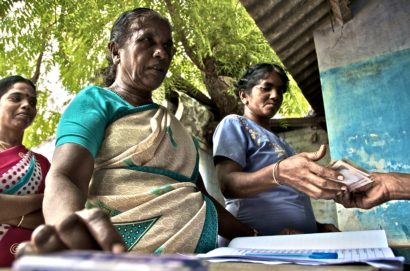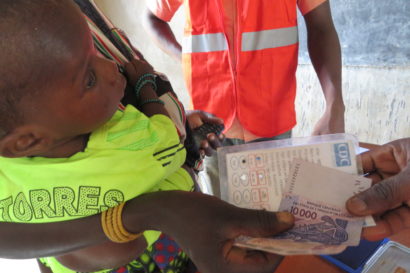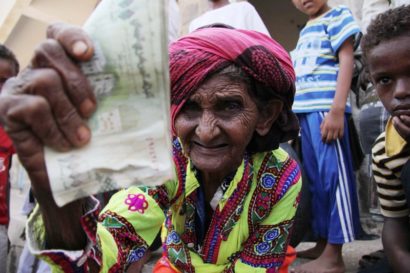Tag: Conflict
This report focuses on the specific challenges and opportunities of states that are making two challenging concurrent transitions, away from both extreme poverty and from conflict. First, they are ‘countries where the longer term prospects of the poor to escape poverty are overall good, but not necessarily secure or sustainable, and at risk of development… Read more
The literature suggests that the effects of social protection initiatives such as cash transfers and vouchers on social cohesion are positive, but there is very little empirical evidence to back this. This review found no research comparing cash transfers and vouchers from the perspective of social cohesion. However, experience of cash transfers in developing countries,… Read more
There are various risks – notably theft, diversion, corruption, security, targeting, misuse by beneficiaries, inflationary effects – associated with cash transfer programmes in fragile contexts. However, the literature indicates that – while different – these are not any greater than those associated with other forms of aid, e.g. vouchers or in-kind goods, and could even… Read more
The current conflict in Yemen, which began in 2015, has resulted in a humanitarian catastrophe. As of March 2017, 18.8 million people are in need of humanitarian support, and 10.3 million are in acute need (Sikurajapathy and Al-Fotih, 2017). Women, men, boys and girls have been affected in different ways by the conflict. This rapid… Read more
This rapid review is based on 5 days of desk-based research. It is designed to provide a brief overview of the key issues, and a summary of pertinent evidence found within the time permitted. The literature was identified using two methods. Firstly, a number of experts were identified and contacted. They were asked to provide… Read more
The Western Balkans remains a region dominated by patriarchal gender norms. The biggest challenge for improving gender equality is changing the mentality of women and men towards traditional gender roles (Petričević, 2012). The literature consistently identifies social attitudes as a barrier to increasing gender equality. Many people are not aware of women’s rights or gender… Read more
This helpdesk report is the concluding report in the query addressing psycho-social interventions in protracted crises with reference to Syria and its neighbouring countries as well as from other fragile and conflict affected states (FACS). This report specifically addresses sports/physical education programmes in and around Syria and its impact. Until recently, arts and sport/physical education… Read more
The term resilience was brought into use by social science disciplines as a counter to discourse on vulnerability (Panter-Brick, 2014). Reducing vulnerability in post-conflict contexts at the household level broadly translates into securing food and livelihoods. This is what this report focuses on. In disaster risk discourse the following definition of resilience is used: the… Read more
The purpose of this report was to provide a summary of existing research on the non-academic benefits of education in a conflict setting. The review seeks to identify particular educational interventions and contextual factors that may influence outcomes in the associated area. In general terms, the range of interventions under each section are categorised as either… Read more
In past decades, much progress has been made in responding to health-care needs of conflict-affected populations. The evidence base for interventions addressing excess morbidity and mortality has expanded. Motivated by a disastrous response to the Rwanda genocide in 1994, the Sphere standards for service provision were developed, fostering quality and accountability on the basis of principles… Read more
The effects of armed conflict and natural disasters on global public health are widespread. Much progress has been made in the technical quality, normative coherence, and efficiency of the health care response. But action after the fact remains insufficient. In the years ahead, the international community must address the root causes of these crises. Natural… Read more









